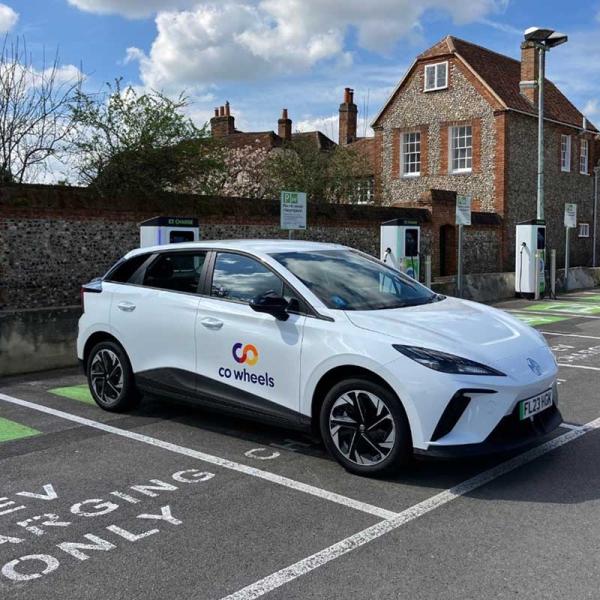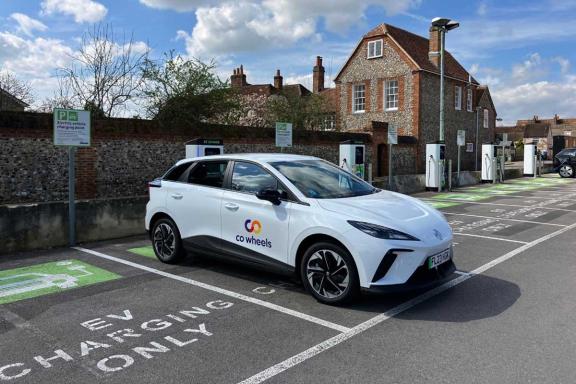EV car clubs: providing wider access to electric vehicles (EVs)
An innovative approach to increase car club provision in suburban and rural areas.
The challenge
Oxfordshire County Council recognised that EV car clubs could provide an alternative to private car ownership and an opportunity to give more people access to electric vehicles. Whilst car clubs have already been successful in city areas, not much had been tried in more suburban and rural areas, where public transport is poorer and car dependency is higher. Oxfordshire County Council wanted to pilot EV car clubs in these areas and use insight and data to inform a strategic approach in Oxfordshire going forward.
There were a few things they wanted to understand:
- demand in local areas – specifically in suburban and rural areas
- how residents in those areas perceived car clubs
- what is needed to make them successful and engaging for residents, as well as a viable business model for car clubs
The University of Oxford was also very interested in the pilot at both a local and national level and secured their own funding to carry out some research alongside the Oxfordshire pilot.
The solution
Our team designed a solution allowing a county-wide voluntary pilot to run without funding or procurement. Funding dedicated electric vehicle (EV) chargers is a significant barrier to car clubs using EVs. However, the spare capacity at public EV chargers installed in the Park and Charge Oxfordshire project provided the perfect opportunity for car clubs to trial EVs without additional cost.
We invited all the Oxfordshire EV car club operators likely to be interested in participating in the twelve-month pilot. We offered a dedicated EV charging bay for a year to the three commercial car club partners who agreed to participate. A further local start-up joined the project at a later date. These car club partners agreed to take part at their own cost.
All partners—including the five district councils and two EV ChargePoint operators hosting the car clubs—signed a simple memorandum of understanding that set out roles, responsibilities, and commitments within the pilot. This made the administration simple to manage and the project agile in its response and delivery.

The results
The EV car club launched in April 2023 with 11 fully electric shared vehicles, supported by communications and promotions that raised awareness and encouraged vehicle use.

We shared data with car club operators and councils on:
- the number of new members and active users in each area
- the number of hiring sessions
- the details of the length and mileage of each session
Throughout the pilot, we removed cars performing poorly and added others where we identified new opportunities. Where one operator left a less popular location, another stepped in and had more success.
We trialled 14 site locations across 11 towns and villages over the pilot period. By the end of year one:
- 1,000 new EV car club members/users in pilot locations
- more than 3,000 individual hiring sessions (outside of Oxford)
- over 165,000 electric miles driven
At the end of the pilot period, enough sites were viable, and 15 cars continued into the longer term across 10 locations. These cars don't need any subsidy from Oxfordshire County Council or district councils.
Following our performance reporting, we are now using the insight gathered from the pilot to make recommendations for future strategy and action to introduce more EV car clubs around the county. The project has inspired councils nationwide to run schemes and have looked to Oxfordshire County Council for advice and support.
Being able to pull together the expertise we needed, in an agile way meant we were able to be proactive with this project. Innovate Oxfordshire provides that flexibility and the ability to step back and think about things differently.